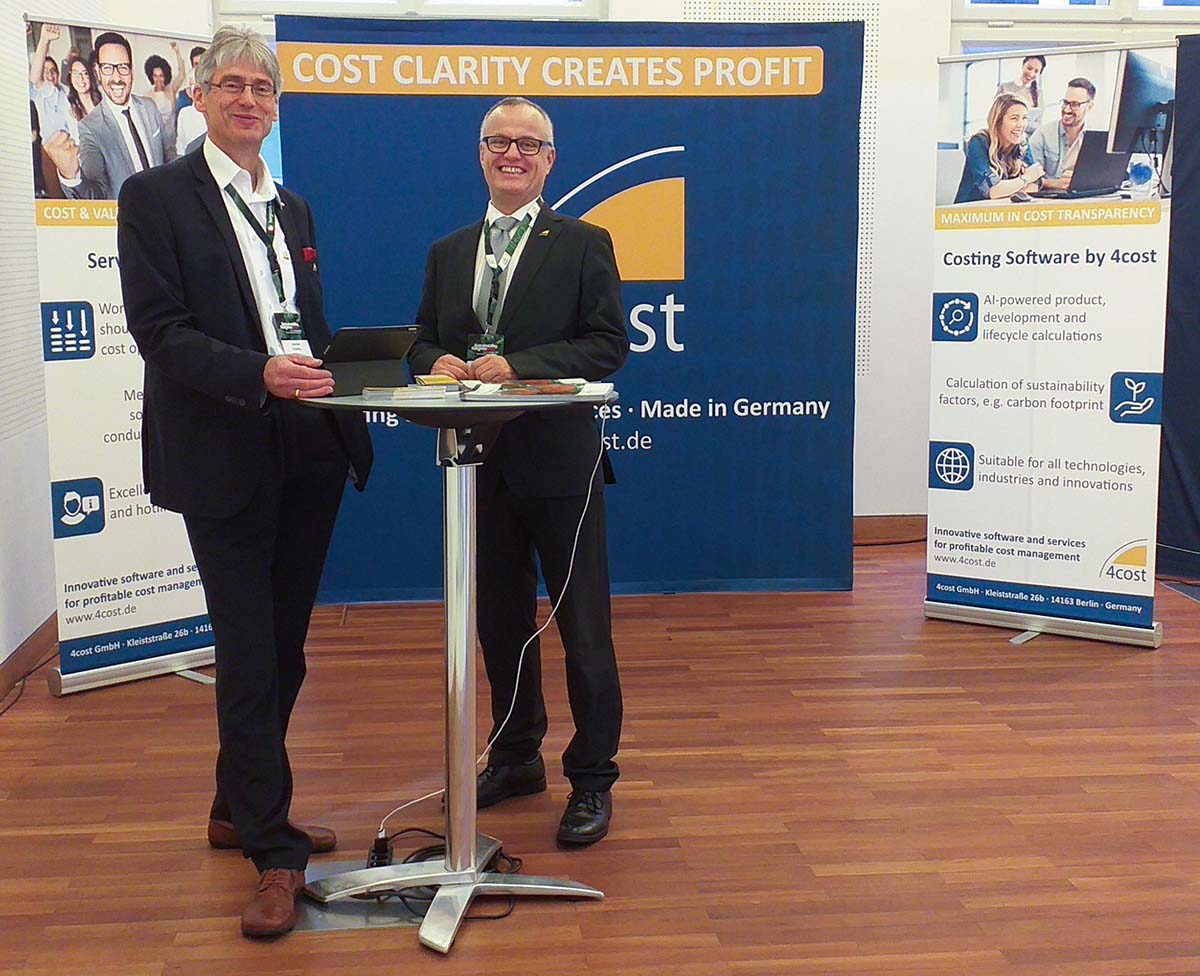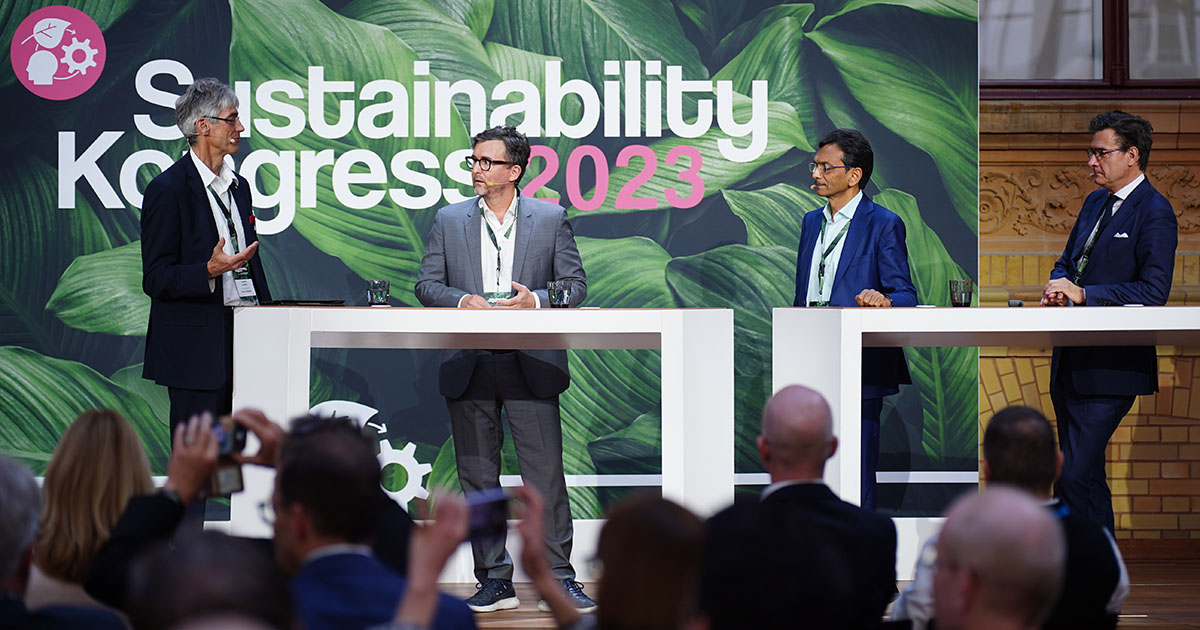4cost sponsors and exhibits at the Sustainability Congress 2023
On 18 and 19 October 2023, 220 industry, academic and political leaders gathered in Berlin at the 2nd Sustainability Congress of the Berlin Institute Supply Chain Management to discuss the latest developments and challenges in the field of sustainability. It was emphasised that sustainability goes beyond a mere trend and is an indispensable response to the pressing issues of the climate crisis, resource scarcity and social change. Companies are faced with the task of transforming their business models and processes to meet these requirements.
4cost was once again a sponsor of the congress and presented its costing solutions on site. “Validly calculating sustainability in the industry is a complex challenge that proves difficult for several reasons. Firstly, it requires a comprehensive view of the entire life cycle of a product or service, which necessitates the acquisition of a large number of data points across the entire value chain. From the extraction of raw materials to recycling or disposal at the end of the life cycle, all environmental and social impacts must be taken into account,” explains Joachim Schöffer, Managing Partner of 4cost GmbH. “This is where the use of professional costing software can help to bundle and evaluate these large amounts of data in a standardised application and make it available to all parties involved.”

F.l.t.r.: Joachim Schöffer (Managing Partner, 4cost GmbH), Arnd Schüller (Head of Sales, 4cost GmbH)
The congress highlighted three central elements that form the framework conditions for sustainable corporate management:
- Ecological impact: This focused on climate change, the goal of reducing emissions and supporting renewable energy, as well as the efficient use of resources. The preservation of biodiversity and the promotion of the circular economy through the sustainable procurement of materials and the optimised use of waste and water resources were also highlighted. A particular focus was placed on the strategy for sustainable water use by 2030.
- Social impact: This area focussed on the responsibility of companies to uphold human rights along the entire supply chain. Regulatory approaches and targeted strategies were discussed, with a particular emphasis on the importance of diversity, equity and inclusion. Programmes that support social issues and community development along the value chain were also discussed.
- Governance framework: The third focus was on corporate governance and structure with regard to ESG criteria. The obligations of company boards, compliance with the guidelines of the German Corporate Governance Code (GCGC) and the implementation of comprehensive ESG reporting were discussed.
The congress offered not only theory, but also practical insights: JPM-Silicon explained the far-reaching effects of enforcing human rights on the production of photovoltaic systems and thus on the European Green Deal. Volkswagen Group Logistics presented its “go to zero” strategy, which includes sustainability measures in production and logistics. Robert Bosch GmbH also presented how they are meeting the challenges in the areas of climate protection and the circular economy. Joachim Schöffer moderated the discussion panel on the topic of “Best in Class”, in which Sean Jones (Chief Sustainability Officer, Microsoft Germany), Divya Vir Rastogi (CEO, EXA AG) and Dr Kai C. Andrejewski (Member of the Management Board / CFO, Sixt SE) spoke about the numerous factors that make it difficult to precisely calculate sustainability aspects, among other things.

F.l.t.r.: Joachim Schöffer (Managing Partner, 4cost GmbH), Sean Jones (Chief Sustainability Officer, Microsoft Germany), Divya Vir Rastogi (CEO, EXA AG), Dr. Kai C. Andrejewski (Member of the Management Board / CFO, Sixt SE)
"Overall, calculating sustainability in industry is an ongoing process that requires a combination of quantitative data, qualitative assessments and constant dialogue with all stakeholders. Despite these challenges, it is crucial that companies follow this path in order to contribute to a more sustainable economy and society," concludes Mr Schöffer.
4cost would like to thank all participants and the organisers for the interesting insights. The congress made it clear once again that a commitment to sustainability in companies is not only feasible, but also economically advantageous.
